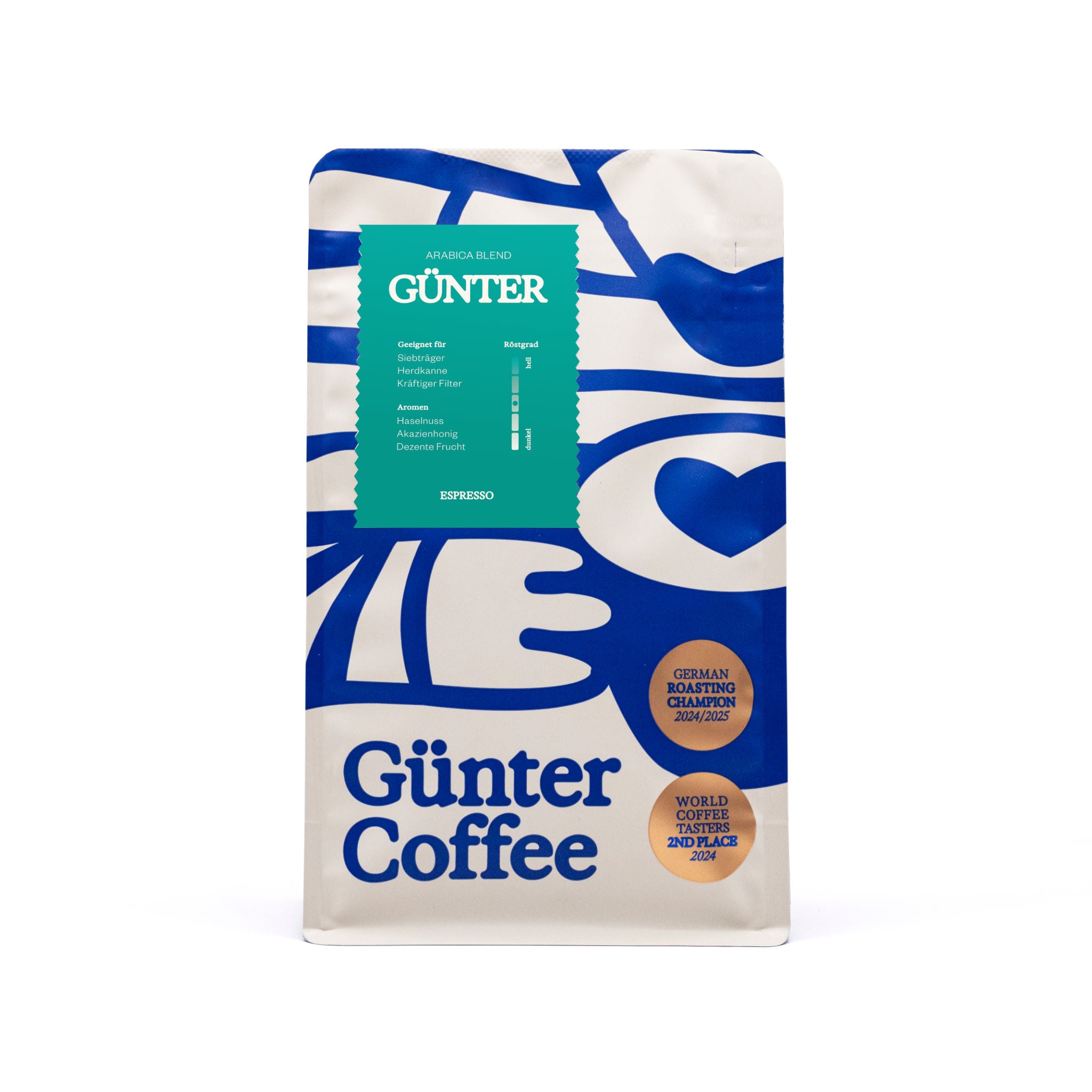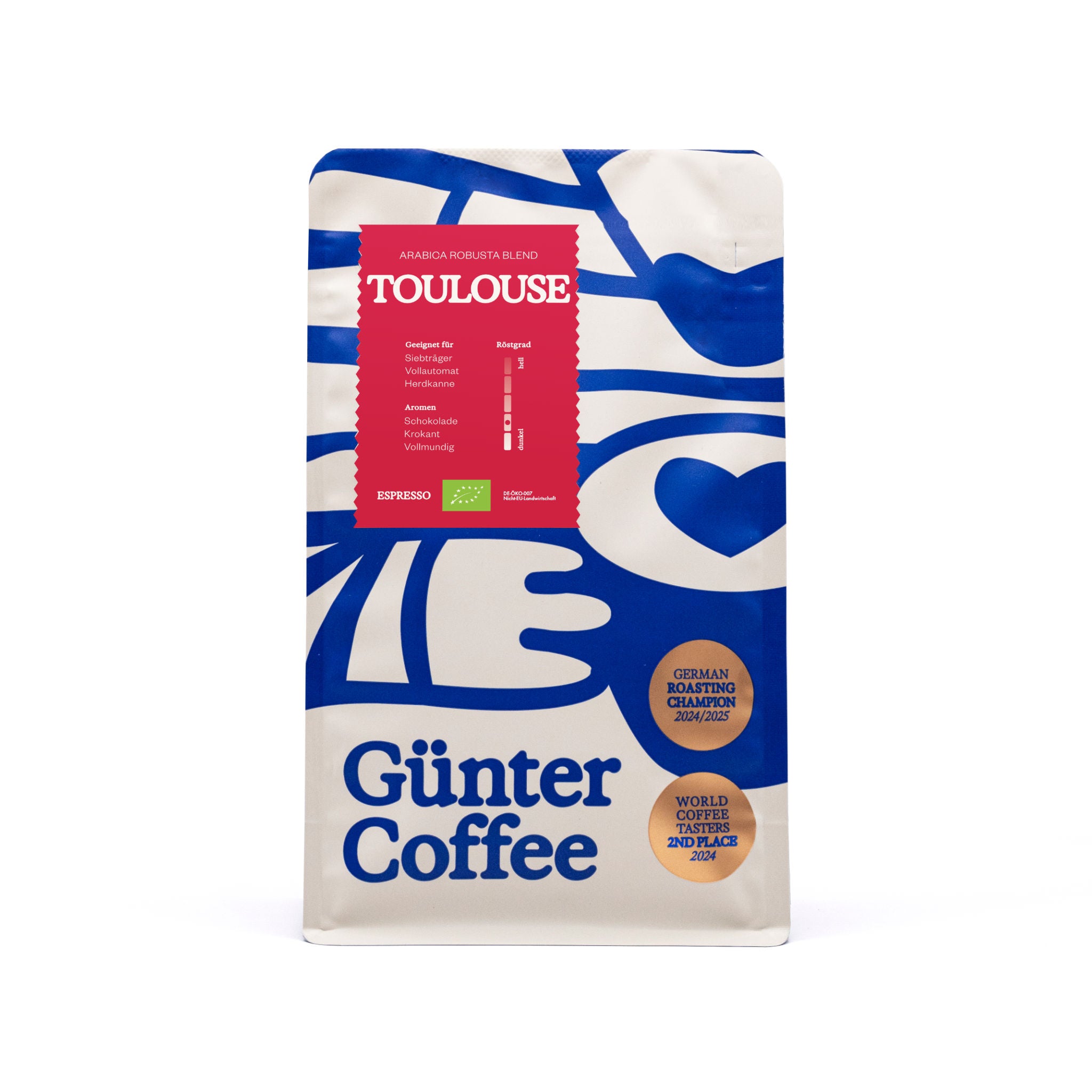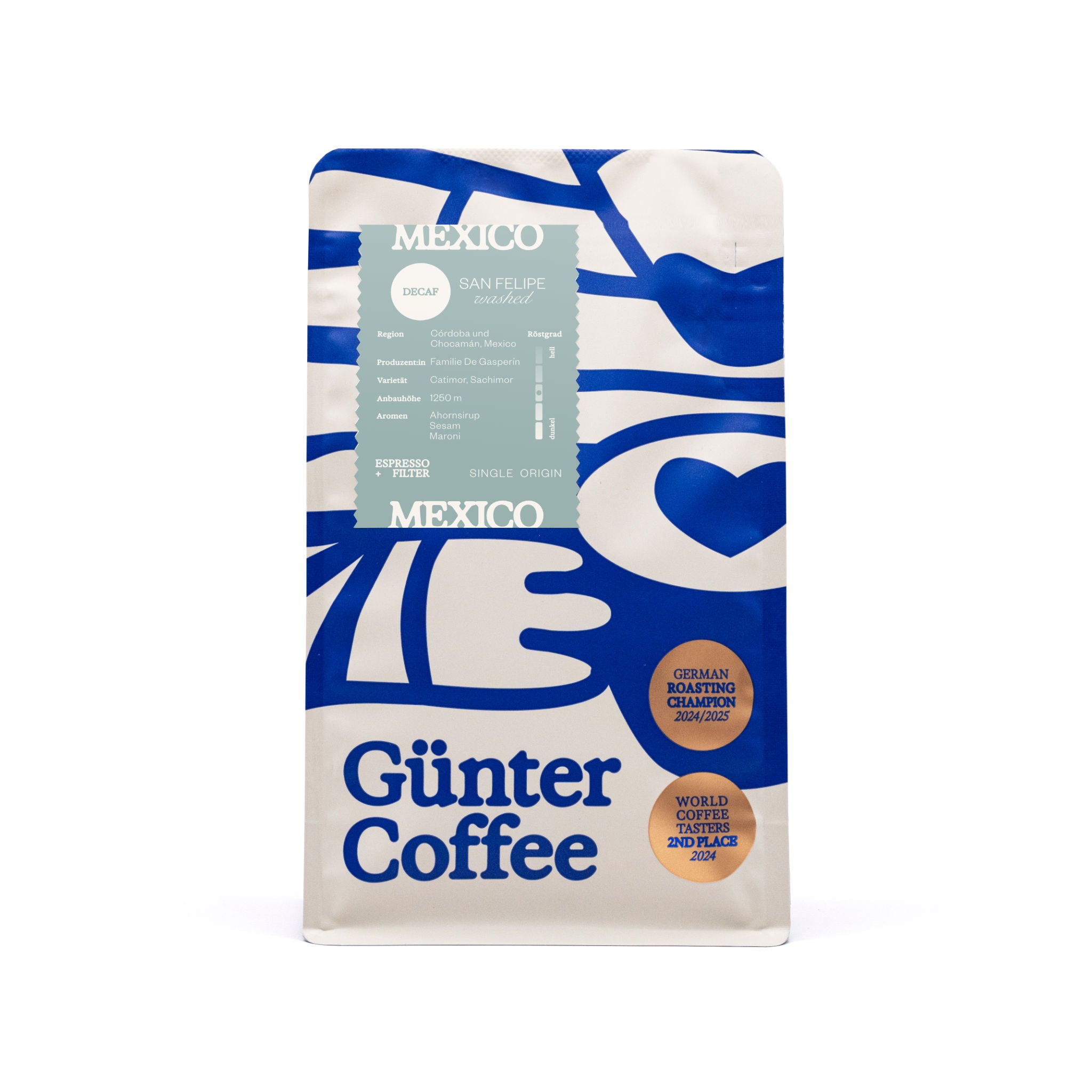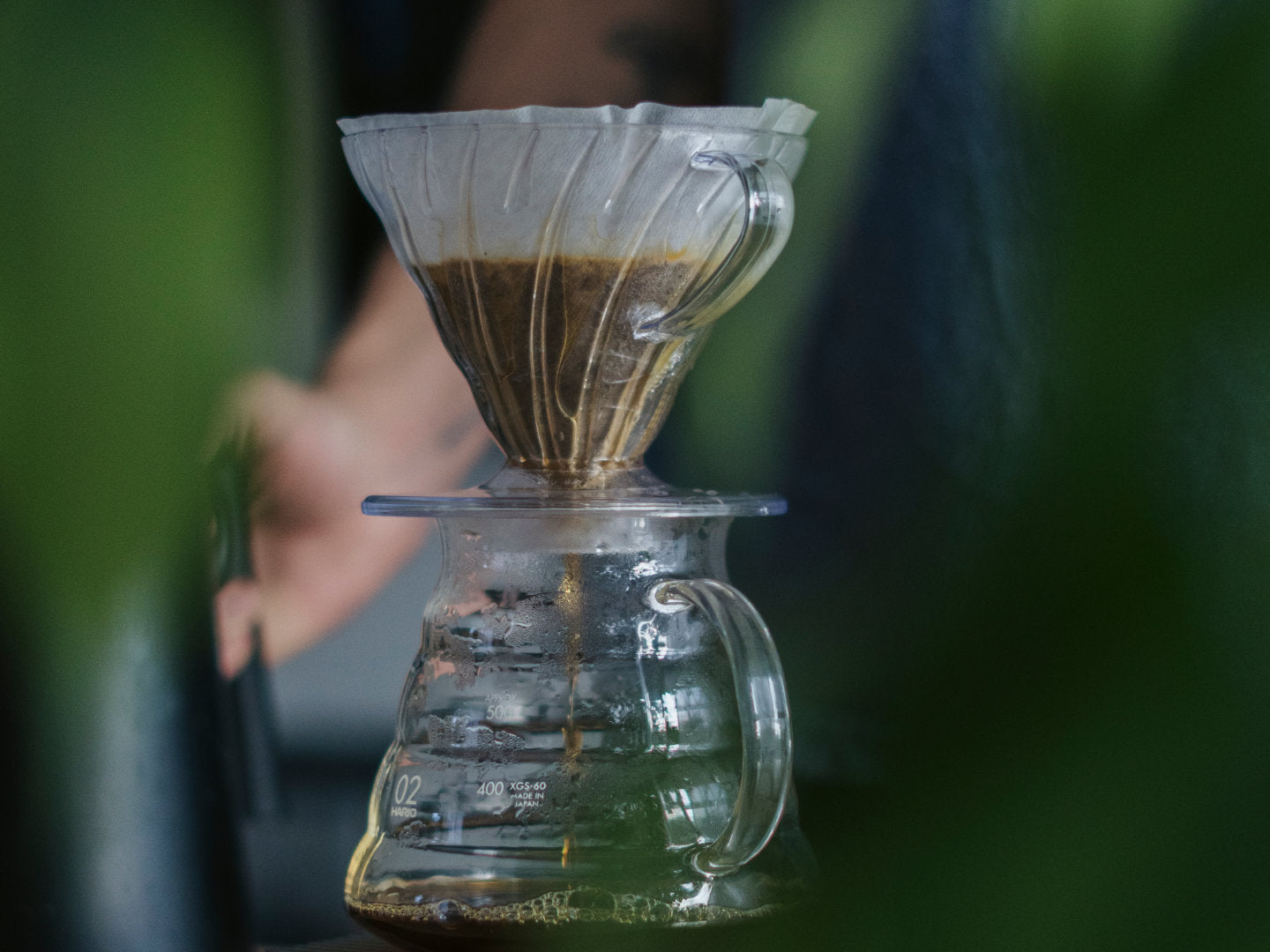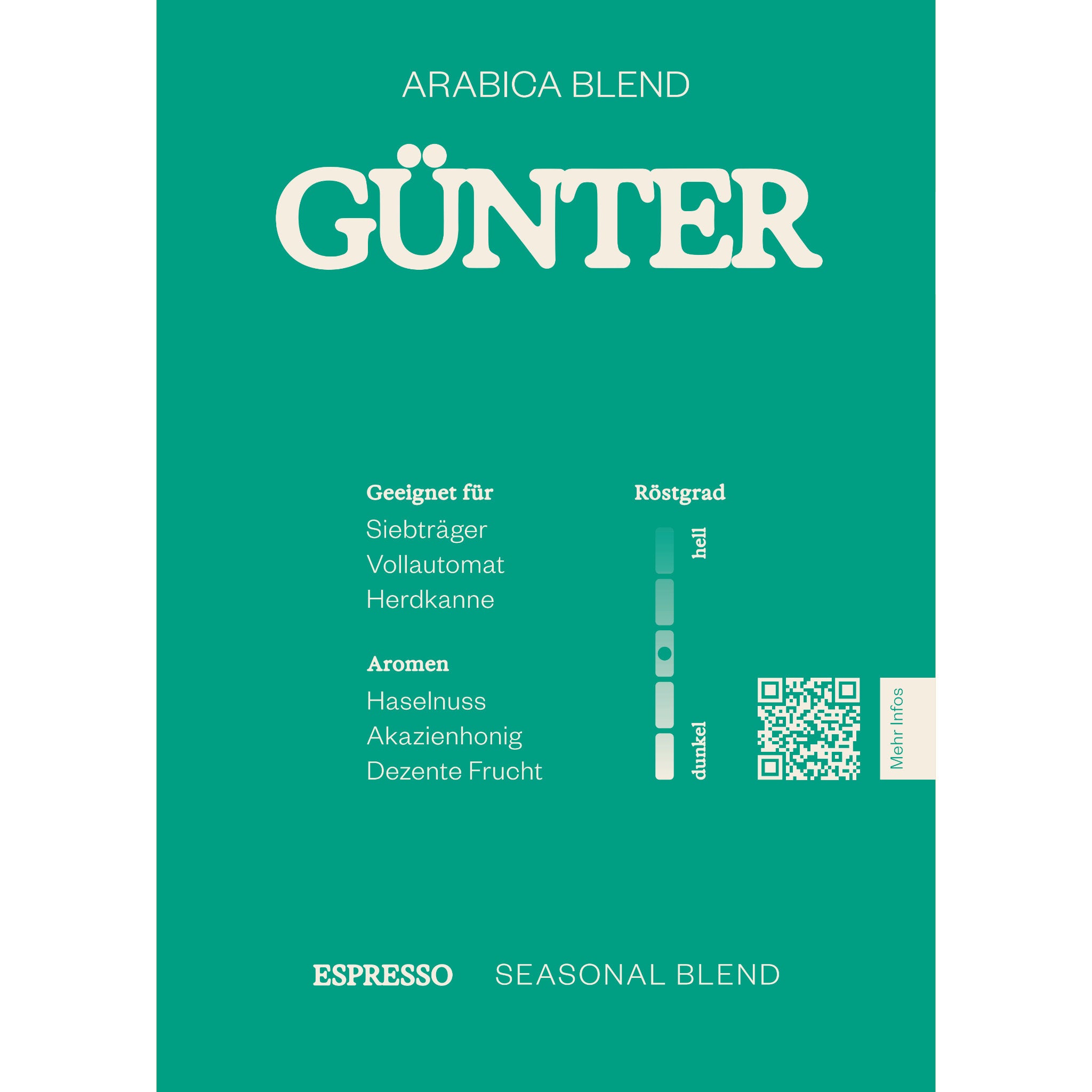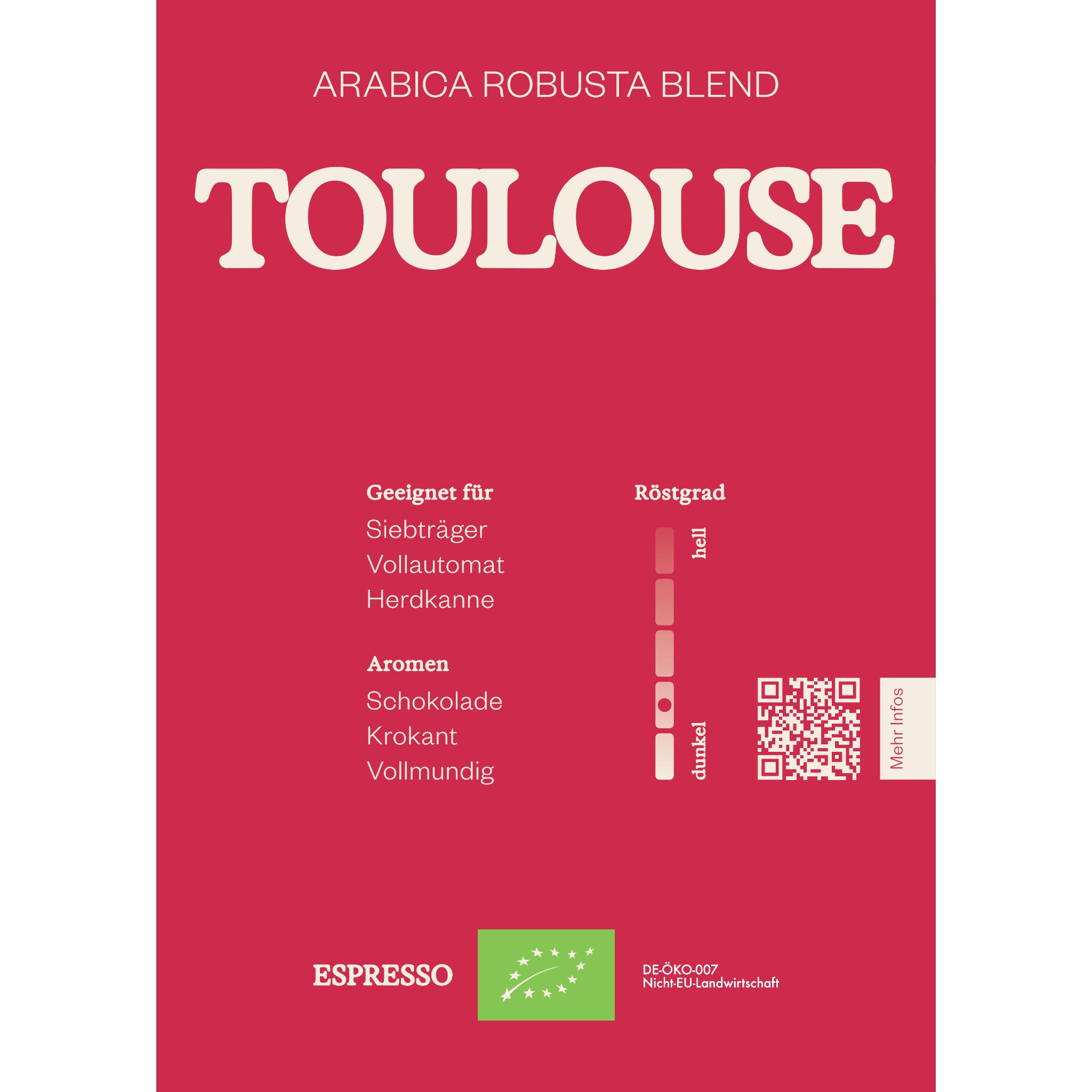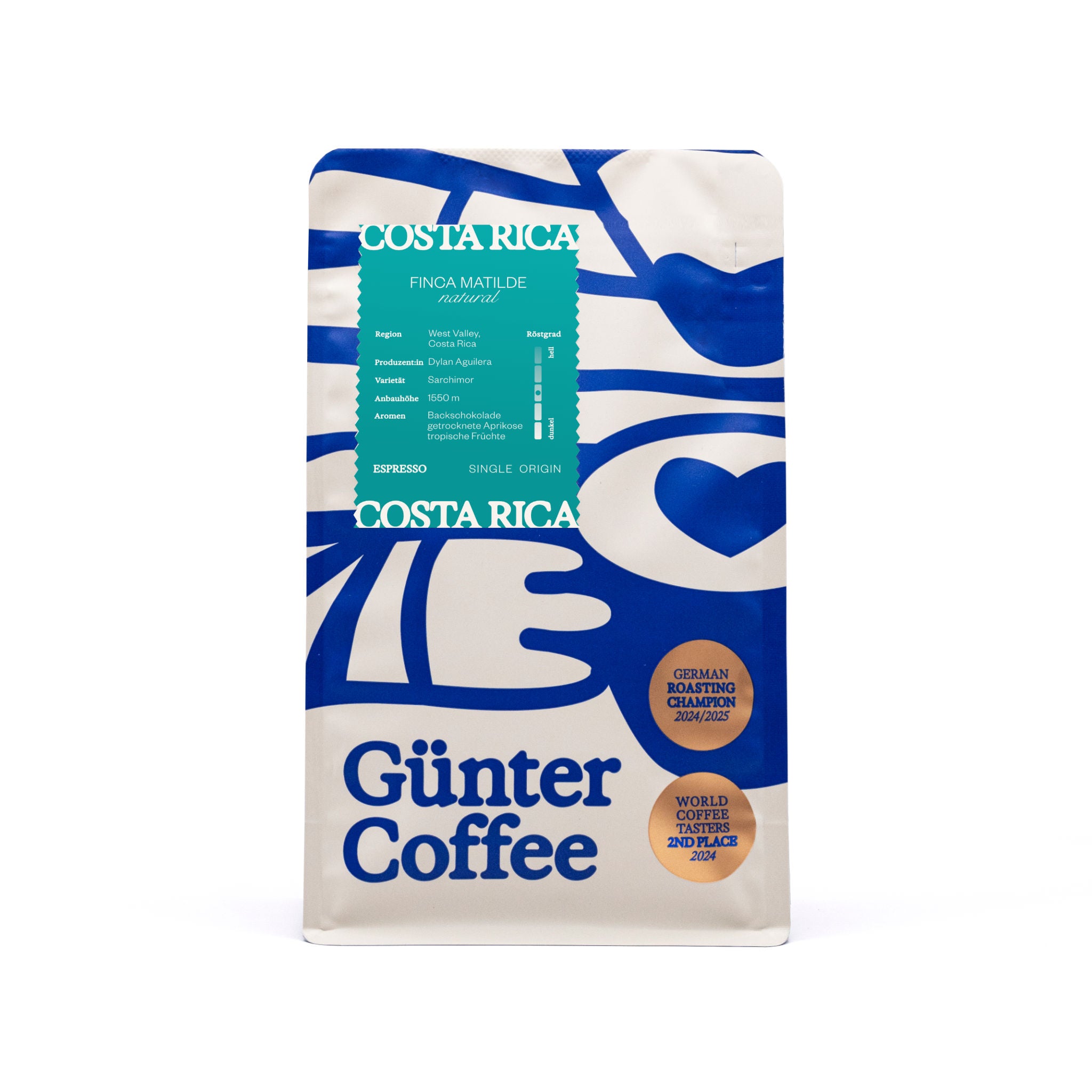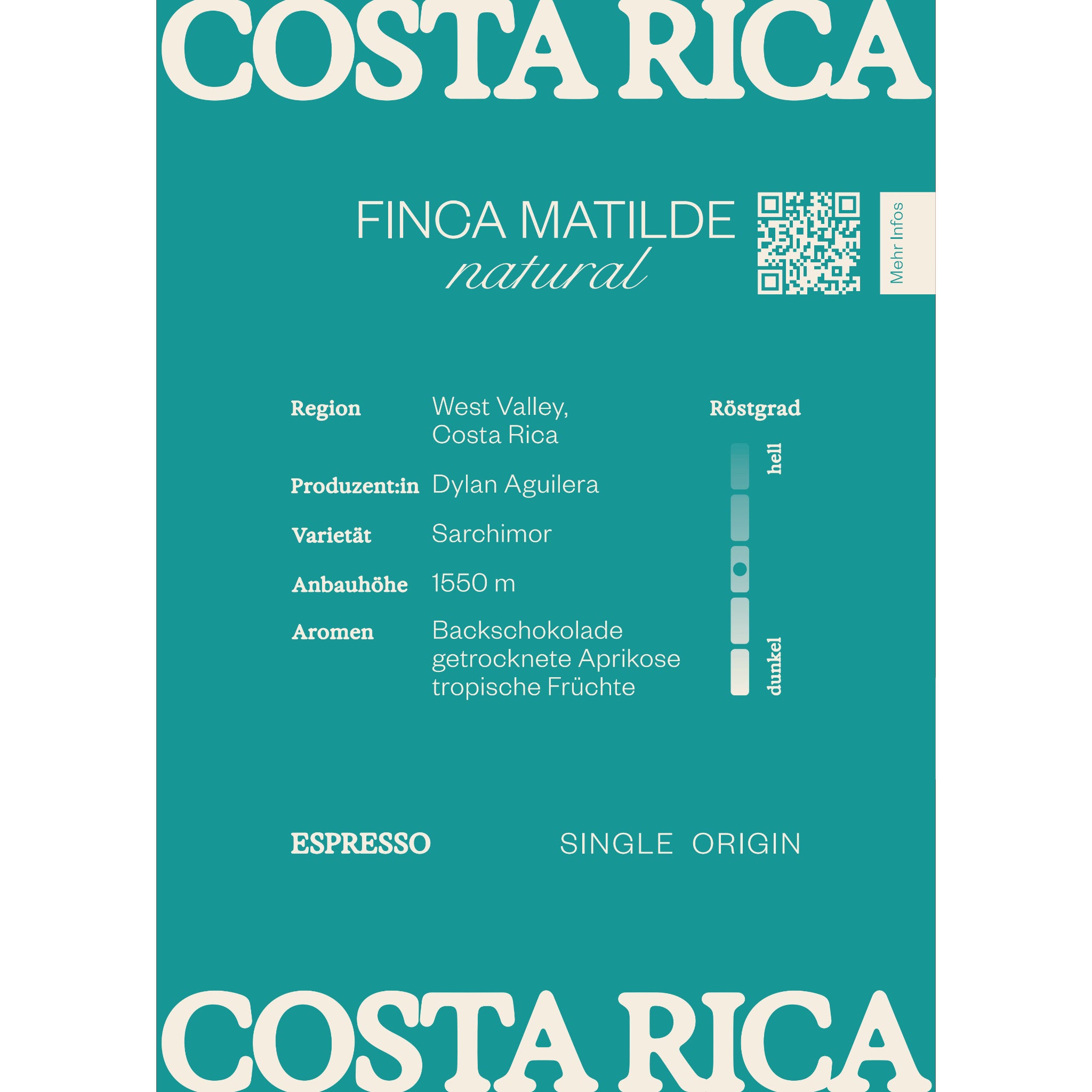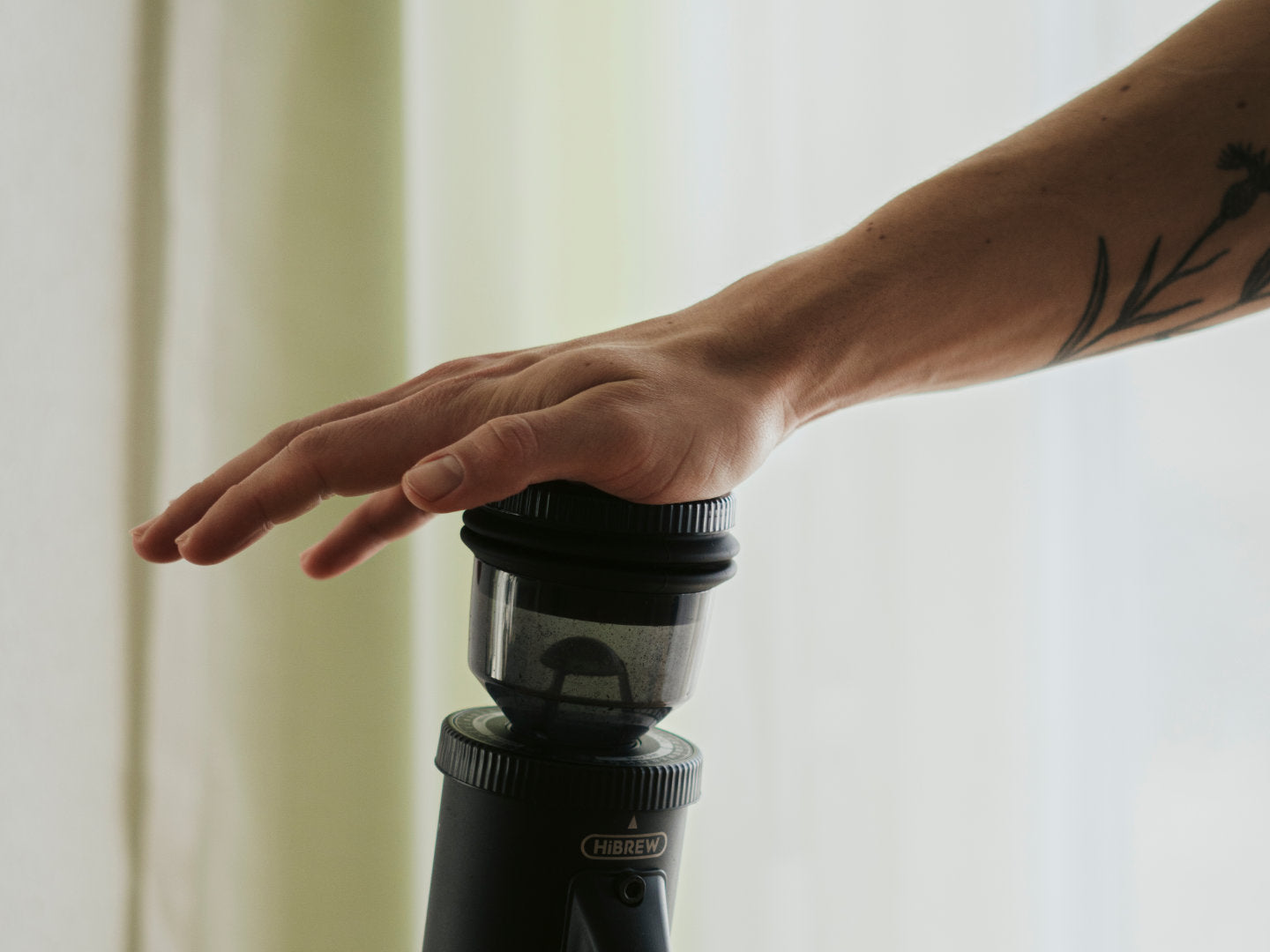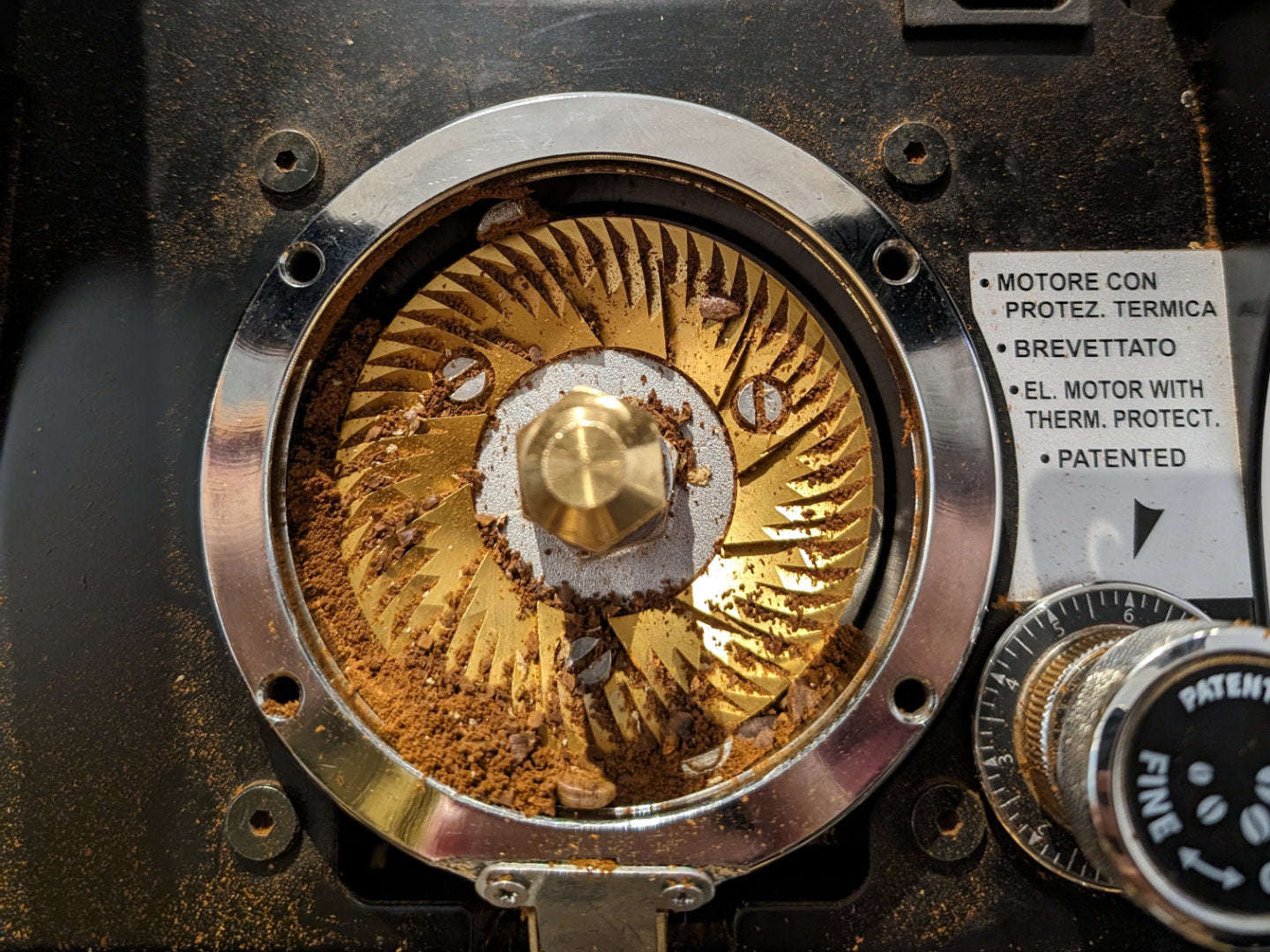The Cup of Excellence is an international competition for assessing coffee quality that takes place every year in different countries. The coffees are blindly evaluated by experts using cuppings. Anyone who wants to take part submits their best coffee and hopes that it will reach and convince the international jury after the national competition has been successfully completed. The best coffees receive an award, the Cup of Excellence, and are then auctioned off in an online auction. The Cup of Excellence aims to promote the quality and diversity of coffee and guarantee farmers a fair price for their work.
The first Cup of Excellence competition
The idea of the Cup of Excellence was brought to life by George Howell, Susie Spindler and Silvio Leite. The first competition to evaluate Brazilian coffees took place in 1999. In an interview with Andrew Barnett of sfgate.com, Howell described the success of his project this way:
There are now national competitions in Ethiopia, Bolivia, Brazil, Burundi, Costa Rica, Ecuador, El Salvador, Guatemala, Honduras, Indonesia, Colombia, Mexico, Nicaragua, Rwanda and Peru. A competition in Thailand was also added in 2023. In the years 2002-2020, the competition was organized by the Alliance for Coffee Excellence, or ACE for short, which was founded for this purpose. Since 2020, the competition has been run by the spin-off non-profit organization Cup of Excellence, but is organized largely by the same people and based at the same address in Portland, Oregon, USA.
This is how the Cup of Excellence competition works
The competition is open to all coffee producers, regardless of size, type of business or regional origin of the respective host countries. Participation with one coffee sample is free. The coffee competition consists of six rounds in which the coffees are tasted blindly in several cuppings. So the jury members don't know which coffee from which farm they are currently tasting.
In the first three rounds, a national jury judges the submitted samples. Pre-selection takes place in the first round. A maximum of 150 samples that achieve a rating of 86 or higher advance to a round. Farmers whose coffees have been selected must now ship their entire lot from which the sample comes to a warehouse. New samples are then taken from this and used for further competition. This process is audited and monitored by an independent organization. In the second round, a maximum of 90 of the 150 samples will advance to the next round, provided they are again rated 86 or more points by the national jury. In the third round, the number of samples from each country is reduced again until 40 samples remain.
Now the farmers and their samples are off to the world stage: one week after round three, an international jury of 25 people cups all ≤40 samples. In round four there are a maximum of 30 coffees that receive over 87 points. These will be cupped again in the fifth round to select the 10 best coffees, which will receive the Cup of Excellence title. In the sixth round, on the last cupping day, the aim is to determine the ranking of the individual coffees. The 10 best coffees will be auctioned off online by ACE after around six weeks.
Since 2016, there has also been the “National Winner” program, in which coffee beans are also auctioned that did not receive the international Cup of Excellence award but performed above average in national competitions. These are coffees that achieved 86 or even 87 points on the 0-100 rating scale, but were eliminated in rounds 4 or 5.
Auction of green coffee from the Cup of Excellence competition
The coffees awarded the Cup of Excellence and those from the National Winner program will be auctioned off to the highest bidder or bidders via the ACE website at allianceforcoffeeexcellence.org. Interested parties can also form so-called buying groups before the auction, i.e. groups of buyers, in order to bid together on certain coffees and, if the bid is accepted, divide them up as agreed. However, ACE does not act as a middleman here, which means that the risk remains with the group founder or the bidding party.
The majority of the proceeds will go to farmers, according to information on the CoE and ACE websites. Exactly what percentage that is remains unclear, which is why we asked. The answer: “Approximately 70-75% of the auction proceeds go to the farmers. The rest will be used to cover the costs of the competition, such as storage of the coffees, transportation and costs of the competition itself.” The Cup of Excellence Mexico competition raised a total of $295,218 in 2023, according to the ACE website. 30% of this is 88,565, a quarter is still 73,805 US$, which corresponds to around 68,000 €*.
How many Cups of Excellence are there per year?
The number of Cups of Excellence each year varies depending on the participating countries and harvest conditions. For example, in 2021 there were 11 competitions in 10 countries: Brazil, Burundi, Colombia, Costa Rica, El Salvador, Guatemala, Honduras, Mexico, Nicaragua and Rwanda. In 2020 there were only 8 competitions in 7 countries: Brazil, Burundi, Colombia, Costa Rica, El Salvador, Honduras and Mexico.
How much does coffee with the Cup of Excellence award cost?
The green coffees that receive the Cup of Excellence award achieve very high prices every year. All prices, cupping points, farms, lot sizes and buyers of the winning coffees from the different countries from previous years can be viewed on the ACE website.
For example, the first-place coffee from Thailand fetched a price of USD 73.30 per pound in 2023, which corresponds to around €150* per kilogram. The one from Peru from the same year fetched a price of USD 80.20 per pound, approximately €160* per kilogram. The top-ranked coffee from Guatemala even achieved a price of €265*/kg, making it the most expensive Cup of Excellence coffee for 2023. It should be noted that the lots on which these exceptional coffees are grown often only cost low three-digit prices Deliver kilogram yields. So it's more about making a name for yourself as a farmer among roasters.
Roasteries sell these beans at a correspondingly high price and often in sizes around 100 grams. For example, the Japanese roasting company Snow Beans Coffee sells the first-place green coffee from Peru (2022), purchased at €160/kg, for 7,000 yen per 100 grams, which corresponds to around €44*.
* Exchange rates as of January 2024.

